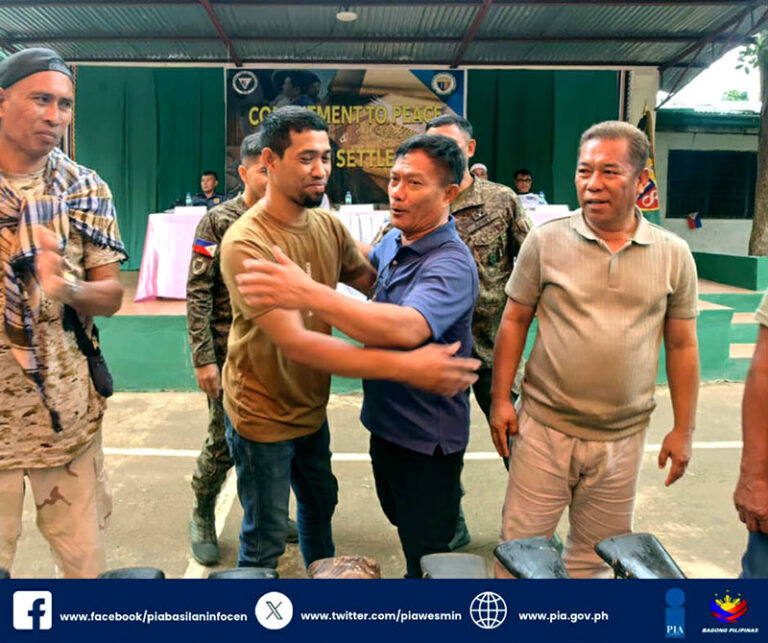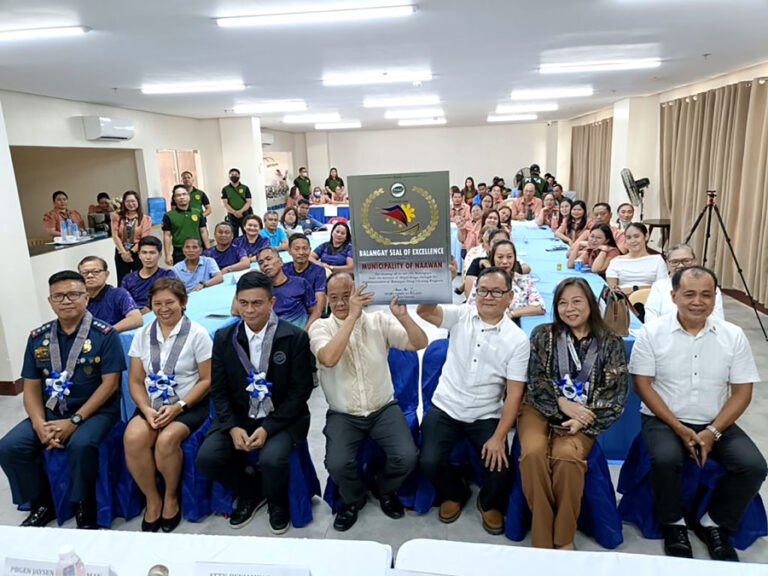
COTABATO CITY – Senator Ferdinand Marcos Jr said his substitute proposal to the Bangsamoro Basic Law as contained in Senate Bill 2894 contains strong safeguards against reckless appropriation and utilization of funds.
Senate Bill 2894 refers to the Basic Law for the Bangsamoro Autonomous Region.
Marcos said the appropriations and use of funds that would be made by the Bangsamoro parliament shall be audited by the Commission on Audit. “Therefore, they will be held to the generally accepted practices of government accounting,” Marcos said.
Article 5 of Senate Bill 2894, or the “Basic Law for the Bangsamoro Autonomous Region”, states that COA shall establish an auditing unit in the Bangsamoro Autonomous Region which shall examine, audit and settle all accounts pertaining to the revenue and receipts of, and expenditures or uses of funds and property, owned or held in trust by, or pertaining to the Bangsamoro Regional Government, according to Marcos.
He said this proposal is a more categorical, explicit, and concrete safeguard against possible misuse of public funds in the Bangsamoro Autonomous Region than the BBL’s (Senate Bill 2408) ambiguous provision that states: “The Bangsamoro auditing body shall have auditing responsibility over public funds utilized by the Bangsamoro, without prejudice to the power, authority and duty of the national Commission on Audit.”
“The language of this provision may have varying meanings to different people. To avoid misinterpretation, I have to make it clear that COA shall audit the funds,” he said.
Marcos also said it may take six weeks before the Senate finishes discussions on the Senate Bill 2894. However, he clarified that this is not a deadline he imposed on himself or on the Senate, but a time estimate based on the pace of the ongoing interpellation and the expected length of the amendment period, which is the next step in the process.
“At the rate of 2 senators a week for the 14 senators who made a reservation to interpellate, that will require only 7 session days or two and a half weeks. That is making the assumption na pare-pareho lang ‘yung haba ng bawat isa. So we’ll see,” he said.
Marcos said Senator Juan Ponce Enrile, who indicated that he would interpellate, and other senators including those in the minority who may also ask questions are not counted among the 14 senators.
“I believe that the minority has been preparing for the period of interpellation, So let’s say we will wrap up the interpellation in three weeks,” he said, adding, after the interpellation, the next stage would be the period of amendments, which Marcos said may take another three weeks.
In the process, changes, revisions, or deletions in the bill will be proposed as committee amendments by the Committee on Local Government, through Marcos being its chairman, and any senator as individual amendments.
Aside from the COA, he said, the Department of Budget and Management (DBM) will also exercise the power to review appropriations that would be made by the Bangsamoro parliament for the autonomous region.
“The DBM will also have a review function over the appropriation of funds in Bangsamoro Autonomous Region because it is, in fact, a local government. The rules that apply to other local governments must also apply to the Bangsamoro Autonomous Region and so the function of review that the DBM carries out should also be applied to it,” Marcos said.
No to BBL
Anti-BBL groups have opposed the expansion of the Autonomous Region in Muslim Mindanao (ARMM) and blamed Teresita Deles, the presidential peace adviser for the division of the people in the mineral-rich, but restive region. There were also calls for Deles to step down and accused her of selling Mindanao to the rebels.
In Lanao del Sur, Christian villagers vowed to reject the BBL, saying they do not want to be included in the new Bangsamoro territory.
Villagers said shortly after the deal was signed last year, Muslim groups have emerged and started claiming farmlands owned by Christians as theirs and invoking their ancestral rights in Lanao del Sur.
Now, many residents have started arming themselves for fear that once the new Bangsamoro autonomous government is installed, Muslims will take away their lands which they inherited from their clan. Majority of the town’s 40,000 inhabitants is Christians, although Lanao del Sur is one of five provinces under the ARMM.
Some villagers said several groups of Maranao, one of several Muslim tribes in Mindanao, have started putting up markers and began claiming farmlands as their ancestral domain. The markers had been destroyed by landowners.
In Sultan Kudarat province, villagers in the town of President Quirino were also facing the same dilemma, but many also have purchased illegal weapons to protect their families and lands from unjustified takeover by Muslims who warned them that they should leave the town immediately once the Bangsamoro autonomous region is installed because they would take over their farms.
Leaders of the Christian cities of Zamboanga and Isabela in Basilan, also a province under the ARMM, also vowed to fight for their inclusion in the new Bangsamoro homeland, although many of the residents there are Muslims and supportive of the peace deal.
But the creation of Bangsamoro autonomous region would have to be decided on a referendum in the ARMM and in areas where there are large Muslim communities. The new Bangsamoro region will replace the current Muslim autonomous region that has suffered from decades of poverty, corruption, and conflict.
The BBL will pave the way for the establishment of the Bangsamoro region in 2016 – that is if the House of Representatives passed the proposed Muslim homeland law. In Marawi City, Muslims there accused Marcos of sabotaging the BBL.
Lawmakers and various groups were saying that the accord was unconstitutional and also vowed to challenge it to court.
The Philippine Statistics Authority describes Mindanao as an underdeveloped region with problems on peace and order to racism. “From Spanish era up to the present, it remains underdeveloped compared to Luzon. Problem on peace and order due to political conflict and racism issue had been seen as the main factors of the sluggish development of the island in view of the fact that beliefs and cultural diversities between native inhabitants and migrants are existing within it,” it said.
The MILF – a breakaway faction of the Moro National Liberation Front which signed a peace deal with Manila in September 1996 – was the country’s largest Muslim rebel group fighting for decades for self-determination. (Mindanao Examiner)
Follow Us on Twitter: https://twitter.com/MindanaoExamine
Read Our News on: http://www.mindanaoexaminer.com / http://mindanaoexaminernewspaper.blogspot.com/
Share The News




